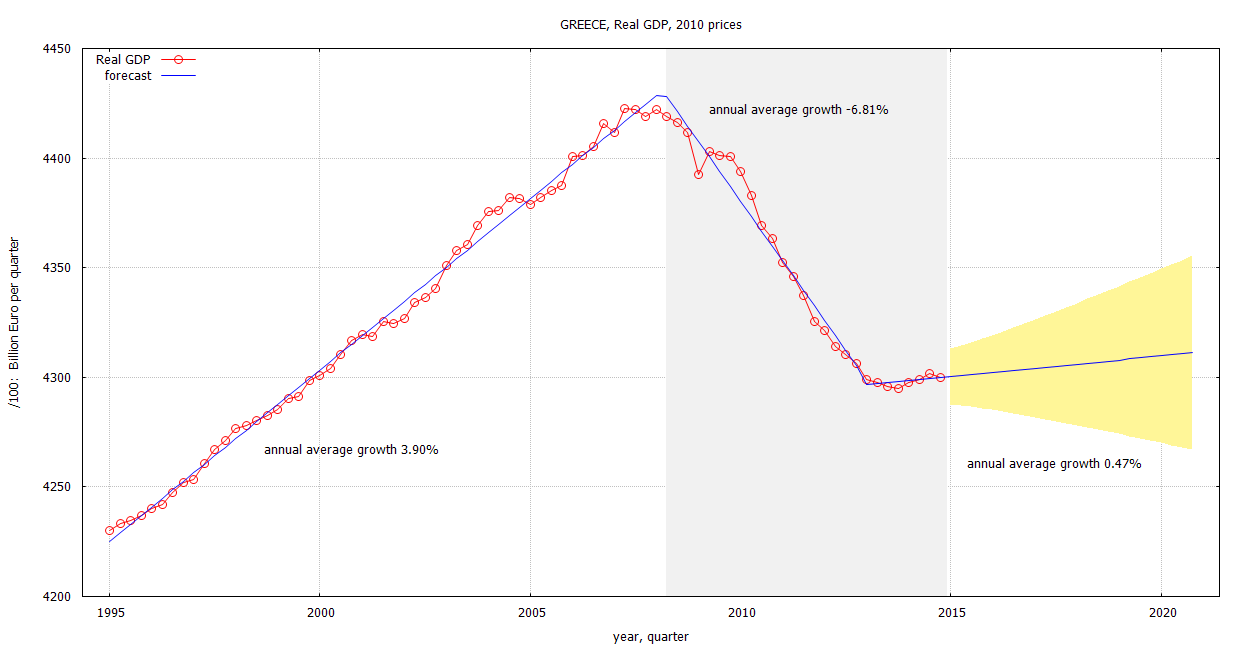Econometrics

Learning Outcomes
The Econometrics course introduces students to the basic econometric methods necessary to quantify the relationships between two or more variables. Specifically, students learn to:
- evaluate quantitative models of economic relations,
- interpret (in economic terms) statistical results resulting from the use of econometric methods in economic models and
- forecast (introduction) economic variables based on a given econometric model
It is the basic quantitative course that links Statistics, Mathematics and Economic Theory.
Upon successful completion of the course the student will be able to:
- Recognize simple and multiple linear regression as a tool for analyzing economic data (cross-section and time series)
- use Excel at an introductory level for econometric analysis; use open source software at an introductory level, e.g. gretl
- provide interpretation and critical evaluation of econometric analysis results
- perform basic model validation procedures in the context of single or multiple linear regression
- read and understand reports and published empirical work that uses the concepts and methods introduced in the class
- use econometric models in academic work
- present technical results in a clear and comprehensible manner
Course Contents
Lecture 1 – 2 :
Definition of econometrics, Data types, Cross section data, Time series data, Panel data. Introductory statistical concepts: random variables, expected value, variance, covariance, correlation, estimators.
Lectures 3 – 4 :
Causality and spurious Correlations, The Simple Bivariate regression model, Ordinary least squares Estimation Method, Sum of Squares Decomposition
Lecture 5 – 6 :
Statistical Induction in Simple Linear Model, Forecasting under the Simple Linear Regression Model
Lecture 7 – 8 :
Time as an explanatory variable, Logarithmic-log transformation, Logarithmic-linear transformation, Linear logarithmic transformation, Stationarity and and non-stationarity, Maximum likelihood method
Lecture 9 – 10 – 11 :
The multiple regression model, The Gauss-Markov theorem, Disturbance terms Variance estimator, Statistical induction in the multiple model, Multiple regression model fit criteria: Coefficient of Determination, Adjusted Coefficient of Determination, AIC and BIC information criteria, Interpretation of coefficients in multiple regression and partitioned regression, Model specification, Missing variables, Introduction of unnecessary variables, Multicollinearity, Dummy variables: Seasonality, Effects of Specific Exogenous Factors, Sequentially Continuous Functions
Lecture 12 – 13 :
Testing joint linear restrictions. F-tests.
Teaching Activities
Lectures (3 hours per week) and Laboratory Exercises (1 hour per week)
Teaching Organization
|
Activity |
Semester workload |
| Lectures |
39 hours (3×13) |
| Tutorials-Practice exercises focusing on the application of methodologies and analysis of case studies to small groups of students |
13 hours (1×13) |
| Hours for private study of the student and preparation of home-works |
98 hours |
| Total number of hours for the Course (25 hours of work-load per ECTS credit) |
150 hours (total student work-load) |
Assessment
Ι. Written final exam in Greek language which includes multiple-choice questions with or without justification
ΙΙ. Optional individual (grade augmentation) projects that involve econometric exercises using Excel and / or gretl
Use of ICT
- Support Learning through the e-class platform
- Using Excel and the open-source program gretl for practice on all the taught techniques and the presentation of economic results


